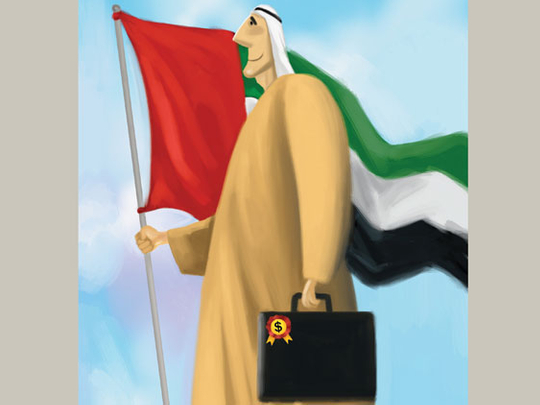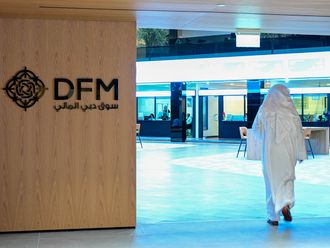
Over the past 50 years, industrially advanced countries have come in first place as per economic and social indicators that are published in international organisations’ reports. Developing countries on the other hand came in last because of the large developmental disparities between the two groups.
However, it seems this image which has continued since the end of WWII until the end of the 20th century is on its way to change. This is due to the huge changes witnessed in the world economy over the past decades and the advances achieved by many developing countries such as the UAE and other GCC countries that have come to surpass the position of European, American, and Asian countries in some development indexes.
A prominent example of these changes and outstanding advances is the UAE’s international stand for its financial policy’s efficiency as published in the 2012 World Competitiveness Yearbook that was issued in June by the International Institute for Management Development in Switzerland.
In this report, the UAE has surpassed important countries such as Britain, France, Japan, and China.
The UAE also ranked high internationally in the Edelman Trust Barometer, where it achieved 78 per cent in government procedures.
This development carries a lot of meanings that point to the economic and social development achieved by the UAE in several fields and over a relatively short time. Moreover, these reports and yearbooks are highly credible as they are issued by specialised international and impartial organisations that enjoy distinguished academic and scientific experiences.
Hence we may deduct the following points from the UAE’s first place in international financial policy competence:
- The effectiveness of the fiscal policy in general and the government policy in particular which means a balance between the development demands and stepping up UAE nationals and residents’ standards of living.
- The competency of social security and pensions with no taxes burdening individuals, companies, and the business sector. The UAE has also occupied an advanced place in the business activities sector’s report.
- The efficiency of the government budget and effectively channeling resources, where positive aspects of spending were enhanced and the unfeasible spending was cut down. There were also structural changes in the government’s budget preparation over the past three years such as issuing a zero budget for the years 2011-2013 with concentration on maintaining public funds. All this led to the UAE securing the seventh place internationally as one of the less wasteful spending countries
- Efficient management of financial surpluses and harnessing it to the service of development.
Thus the UAE’s financial management was met with international recognition which led to an increase of local and foreign investment returns and the UAE’s committing to international standards in the competence of spending in general.
The big leap in the UAE’s position and the competency of its financial policy was built on strong foundations over long years of relentless efforts led by the late Shaikh Zayed Bin Sultan Al Nahyan since the launching of the UAE as a federal state. These efforts have continued till our current day; they are showcased in a highly developed infrastructure that match those in advanced countries which has opened the way towards high growth rates and attracting capitals and investments to diversify national income sources.
This has led to the large growth of the Gross Domestic Product in the few past decades. The GDP of 2012 achieved a growth of 5 per cent reaching Dh1,315 billion, thus the UAE’s economy became the second largest Arab economy after that of Saudi Arabia. The UAE has also occupied an advanced international level in the GDP’s per capita income, reaching $44,000 and thus coming in second place among Arab countries after Qatar.
Inflation rates have settled at acceptable levels centred on 2.5 per cent this current year.
Apart from this, the UAE has made consecutive leaps in the fields of education, health, housing services, foreign trade, transport, telecommunications, developing the system of laws and legislations which has backed growth and enhanced the trust of investors, while developing non-oil sectors, providing a work environment suitable for the private sector, the competitiveness of the country’s markets on the regional and international levels.
With the diversity of economic indexes, the superiority of the country in many areas are evident. In addition to the growth of the Gross Domestic Product and the high per capita, we may well expect a growth in the value of export commodities during 2012 at the high rate of 30 per cent.
For the first time, the value of exports goes beyond Dh1 trillion to reach 1047 Dh ($ 285 billion), in comparison to Dh 808 billion ($ 220 billion) in 2011.
At the same time, the foreign currency reserve is expected to increase by 41 per cent in 2012 to reach Dh203 billion ($ 55.3 billion) opposite Dh143.6 billion ($ 39.1 billion) in 2011.
As further evidence on the appropriate environment and smooth running of the business sector and its high competitiveness, the bureaucracy index is expected to rise to 5.69 points 2012 in comparison to 4.21 points 2011.
These developments and this escalating growth have contributed to transforming the UAE into a modern and advanced country that is able to compete in different areas, including the attracting of a qualified workforce.
Currently, the UAE is considered the first destination of gifted people across the globe as a merit of the country’s competitiveness and the high standard of living provided for both UAE nationals and residents.
These developments also fit with the current changes in economic and international strategic relations at this globalisation stage, competitiveness, and the openness of markets.
All this qualifies the UAE to occupy an advanced level in new international relations as a rising country which has the capacity to compete. This will also lead to achieving additional growth rates and better standards of living over the coming years.
— Dr Mohammad Al Asoomi is a UAE economic expert and specialist in economic and social development in the UAE and the GCC countries.












